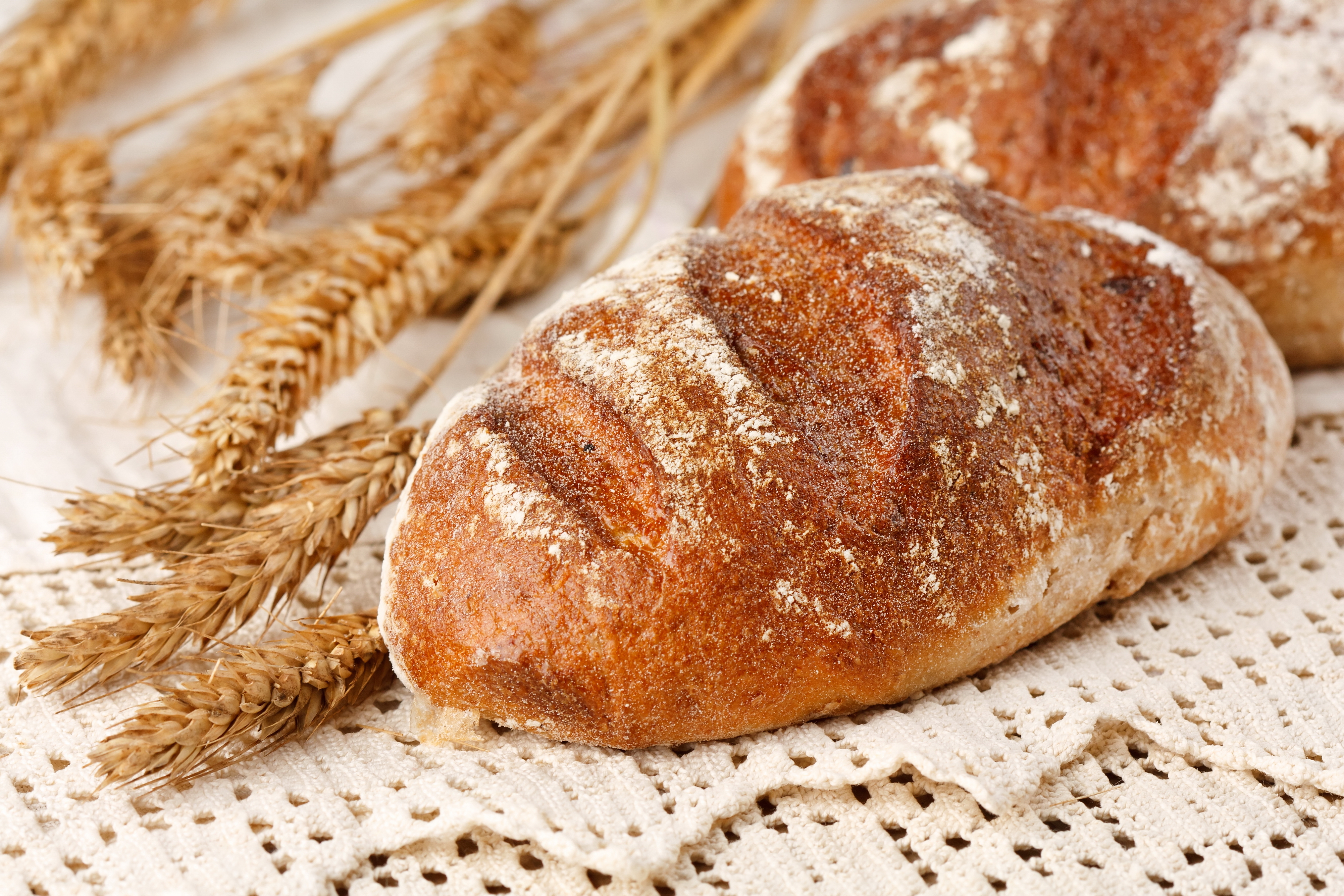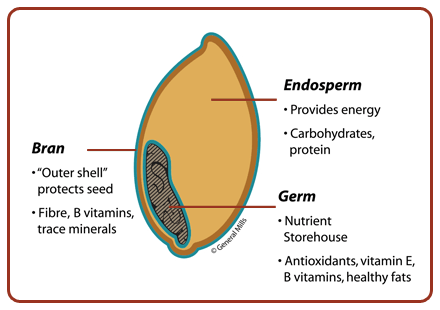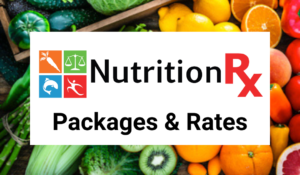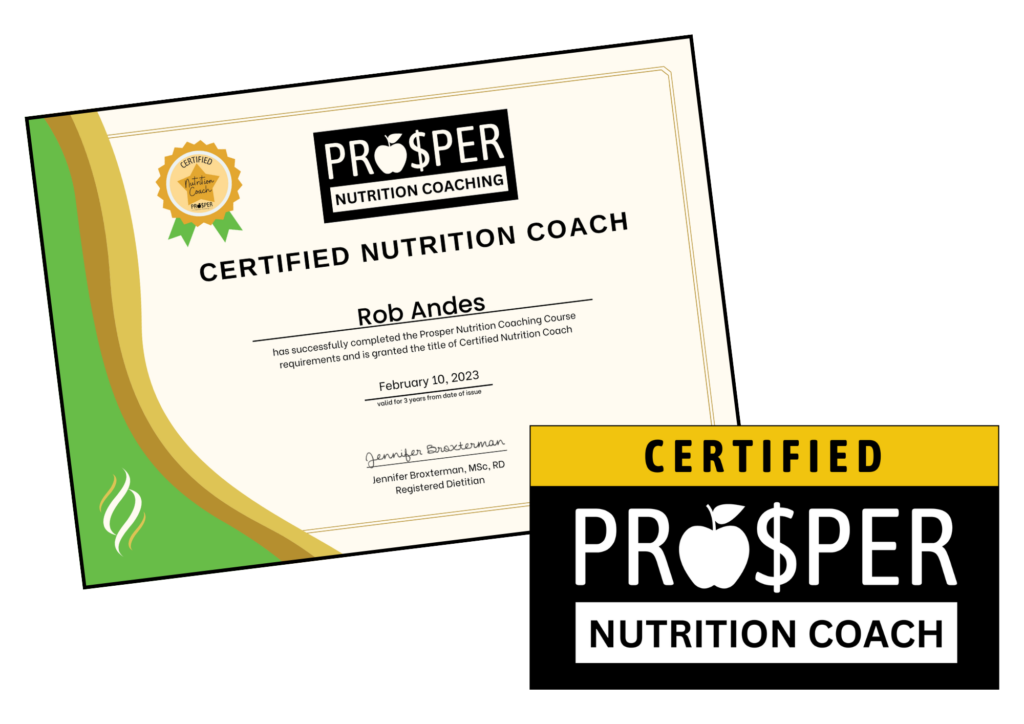

Want a Smaller Waist Size? Make All of Your Grains 100% Whole Grain
Written By: Jennifer Broxterman, BScH Foods & Nutrition
Registered Dietitian & Sports Nutritionist
NutritionRx (www.nutritionrx.ca)
Email: info@nutritionrx.ca
Why Does Waist Circumference Matter?
Waist circumference is a good measure of visceral fat, the type of deep fat that packs itself around the organs and secretes chemicals that increase the body’s resistance to the hormone insulin and cause inflammation throughout the body.

Having a large waist circumference – 94 cm (37 inches) or greater for men and 80 cm (31.5 inches) or greater for women – increases the likelihood of type 2 diabetes, high blood pressure, elevated cholesterol, heart attack, stroke, metabolic syndrome and some cancers.
What the Research Says…
If you’re striving to reduce your waist size, consider swapping refined grains in your diet for whole grains. According to a study of 2,834 middle-aged Americans, those who consumed the most whole-grain foods had a significantly smaller waist circumference. In the study, published online in the American Journal of Clinical Nutrition, visceral fat stores were 10% lower in people who consumed at least three whole-grain servings per day compared with those who essentially ate none (less than half a serving per day). The relationship between whole grains and belly fat persisted even after accounting for age, gender and calorie and alcohol intake. However, the beneficial effect of whole grains diminished in people who also consumed at least four servings of refined grains each day. This suggests that if you’re already eating several servings of refined grains each day (e.g. white pasta, white bread, white rice, refined breakfast cereals), simply adding whole grains to your diet may not translate into a lower waist circumference or less abdominal obesity. You need to substitute whole grains for refined grains.

Whole Grains: Defined
Whole grains contain all parts of the grain: the outer bran layer, the inner germ layer, which is rich in nutrients, and the starchy endosperm. When whole grains are refined, the bran and germ layers are removed, resulting in substantially less fibre, vitamins, minerals and phytochemicals.
The type of grain you eat could influence abdominal fat in a few ways. A high intake of refined grains can cause your pancreas to secrete excess insulin. Over time, this can lead to elevated blood-insulin levels and weight gain. Fibre in whole grains can reduce hunger by delaying stomach emptying. Magnesium in whole grains might improve how the body uses insulin and, as a result, prevent body fat from accumulating.
Add a variety of whole grains to your diet – aim for at least three servings per day. Serve the whole grains below as hot cereal, salads and pilafs. Add them (cooked) to meat-loaf recipes or stews for a heartier flavour and texture.
Some New Whole Grain Ideas to Try…
Barley
Hulled barley or pot barley is the whole-grain version; it’s an excellent source of fibre and selenium, an antioxidant nutrient. (Pearl barley has been processed further to remove the bran.) To cook, bring 1 part barely and 3.5 parts liquid to a boil. Reduce heat and simmer, covered, until cooked, about 60 to 90 minutes.
One serving = ½ cup cooked: 136 calories, 4.8 grams protein, 6.4 g fibre
Brown rice
It’s a good source of niacin, vitamin B6, magnesium and selenium.
To cook, bring 1 part rice and 2 parts liquid to a boil. Reduce heat and simmer, covered, until cooked, about 40 to 45 minutes. Or, invest in a rice cooker – it’s the best $20 you can spend!
One serving = ½ cup cooked: 108 calories, 2.5 g protein, 1.5 g fibre.
Millet
Hulled millet is rich in B vitamins, iron and copper.
To cook, bring 1 part millet to 2.5 parts liquid to a boil. Reduce heat and simmer, covered until cooked, about 25 minutes.
One serving = ½ cup cooked: 104 calories, 3 g protein, 1.1 g fibre.
Quinoa
It’s considered a grain, but quinoa is actually a relative of green leafy vegetables. It’s a good source of protein, calcium and iron.
To cook, bring 1 part quinoa and 2 parts liquid to a boil. Reduce heat and simmer, covered until cooked, about 15 minutes.
One serving = ½ cup cooked: 127 calories, 4.5 g protein, 2 g fibre
Wishing you health & happiness,
♡ Jen
Jennifer Broxterman, MSc, RD
Registered Dietitian
NutritionRx: happy, healthy living with our team of Registered Dietitians
Prosper Nutrition Coaching: a world-class nutrition coaching certification
+
+
+
Want to work with a NutritionRx Registered Dietitian?
Learn more here: Nutrition Packages & Rates
+
+
+
Want to become a Certified Nutrition Coach?
Learn more about our habits-based Prosper Nutrition Certification



